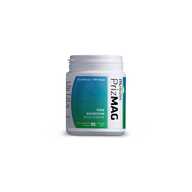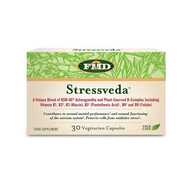What cause menopausal pain?
Osteoarthritis in women greatly increases after the age of 45 which is when most women are peri-menopausal. Increased aches and pains are common complaints of menopausal women. This is a time when estrogen, progesterone and other hormones are declining. Progesterone, in particular, seems to have anti-inflammatory properties and the decline of this hormone can bring soreness and stiffness to the joints.
What can a woman do about this?
Natural approaches to joint pain at this time is to look at diet choices, reduce or eliminate foods that exacerbate pain and inflammation as well as optimise digestive health.
The main foods that increase inflammation include wheat, dairy, sugar, caffeine and processed foods. I recommend switching to spelt products as an alternative to wheat to lighten the load on the digestive system. This will help greatly and spelt is available as a grain, flake, pasta, cereal and flour. You will find the best choice at the health shop along with recipe ideas.
Digestion is also affected during the menopausal transition which means that food can take longer to be broken down and digested. The vitamins and minerals in food may not be getting to where they are needed as effectively or at all, depending on diet choices. This means our bodies are not as nourished as they should be and inflammation can be triggered even more.
If you are a fast eater, it is likely that digestive enzymes have become compromised. These enzymes are needed to break down food and give our bodies energy and help it to perform vital functions. Women have busy lives and often struggle to get time to sit down and eat a meal properly. Over time, enzymes get diminished causing digestive problems including sluggishness, bloating, wind and constipation. All of this will increase inflammation and make any joint pain or muscle aches worse.
A good idea to support digestion is to take a combined probiotic with digestive enzyme supplement at each meal but particularly with bigger meals. This will help with the breakdown of food groups and reduce inflammation. I take Proven Acidophilus & Bifidus Probiotics with Digestive Enzymes and find It amazing for my digestion. It is important to focus on an anti-inflammatory diet like oily fish, nuts and seeds, vegetables, fruits like berries, natural yogurt, fermented food and green foods.
Other remedies that can help
Magnesium is a mineral which helps to relax muscles and is difficult to get in sufficient quantity in our diet nowadays. The main food sources include fish, eggs, nuts, seeds, wholegrains especially spelt and quinoa. We recommend taking it in supplement form to help with muscle aches and pains during menopause – it is needed to work with calcium and Vitamin D and also for bone health. I like Mag365 powder or Prizmag Magnesium Bisglycinate capsule which can be easily incorporated into your daily routine. Magnesium is also found in Epsom salts which are fantastic for relaxing baths along with some lavender essential oil.
In terms of joint pain, some women may have a family history of arthritis and find the joints are particularly painful. It is worth taking Omega 3 fish oils as well as turmeric for extra support. A good brand is Healthspan Turmeric and Omega 3 capsule combined with added Vitamin C and D3 for bone support. Also available from Healthspan is a Turmeric and Glucosamine Joint Supplement where arthritis has been identified along with menopausal symptoms. This product also has Boswellia which is a natural anti-inflammatory and works well for digestive issues also. Both products are on offer at the health shop and are worth trying alongside diet and lifestyle changes.
You may need to check with your doctor or pharmacist before taking supplements if you are on any medication or have a health condition.
Blog written by Davina Downing Nutritional Therapist









